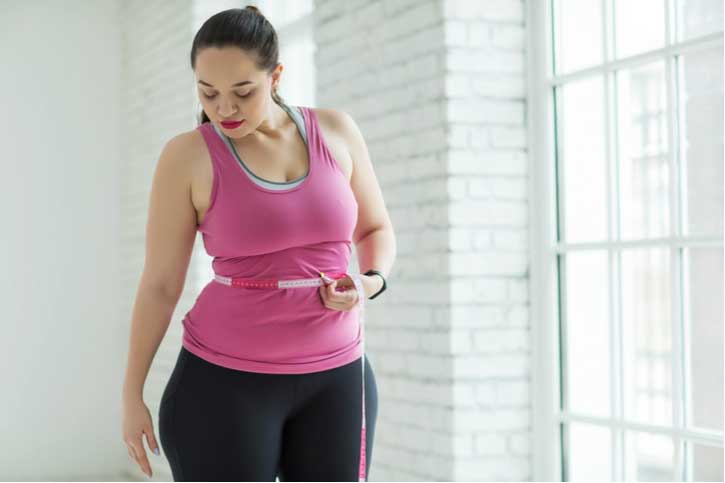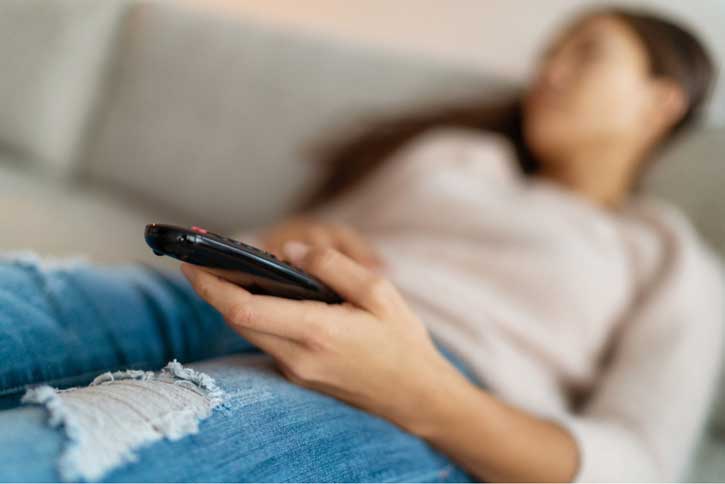Using questionnaire data from nearly 44,000 American women, scientists at the National Institute of Health (NIH) found that women who use artificial light at night (ALAN) might be at an increased risk for obesity.
According to the NIH, this is the first prospective study to link this type of light exposure to weight gain in women. The connection may help researchers better understand how ALAN affects the human body’s biological functions as well as aid them in developing strategies to lower rates of obesity in women.
While study authors were unavailable to comment on the data, they did share additional details and insight with Mattress Clarity regarding their findings.
The Sister Study
Data came from the Sister Study, a cohort study that the NIH says examines risk factors for breast cancer and other diseases. Women who answered the questionnaire were 35 to 74 years of age and had their weight, height, waist and hip circumference, and body mass index measured at the beginning of the study and self-reported this information during a follow-up 5.7 years later.

Participants were not pregnant, daytime sleepers, or performing shift work and did not have a history of cardiovascular disease or cancer.
Women answered questions about their use of artificial light at bedtime including if they slept with no light, a small nightlight, light outside the room, or with a television on in their bedroom.
Weighing In on the Results
The team behind the study said that women who slept with ALAN were more likely to be overweight and obese when the study started, compared to women who were not exposed to ALAN.
The study results also showed that women who slept with artificial light were more likely to gain weight or to become overweight or obese than women who did not.
“Our findings did not change when analyses controlled for characteristics that may be associated with exposure to light at night,” scientists at the NIH shared with us in a document via email. “These factors included age, having an older spouse or children in the home, race, socioeconomic status, calories consumed, and physical activity.”
Scientists said the amount of weight gain differed depending on the amount of light exposure at night. While a small nightlight was not associated with any weight gain, the participants who slept with light or television were 17% more likely to gain 11 pounds or more (about 5 kg) during the nearly six-year follow-up period.
Of that same group, the research team said 22% were more likely to become newly overweight (if they were not overweight when their base measurements were taken). Likewise, 33% were likely to become newly obese if they weren’t obese at the beginning of the study.
Is Poor Sleep the Missing Link?
The connection between ALAN and weight gain remains unclear, according to the study’s authors.
“Our study provides prospective evidence that exposure to artificial light while sleeping may contribute to weight gain and becoming overweight or obese,” the study authors said. “Because we could account for other sleep characteristics and factors potentially related to light exposure and weight gain, we were able to show that exposure to light while sleeping may affect weight gain independently of the known effects of short or poor-quality sleep.”
The study authors did say that exposure to light at night while sleeping could alter the body’s 24-hour body clock, leading to changes in hormones and other biological processes that regulate sleep, appetite, and weight gain.
“These findings don’t surprise me, as artificial light plays a significant impact on our circadian rhythm and sleeping patterns,” Robert Soler, Vice President of Research at BIOS Lighting and a former NASA scientist who helped design and build the first LED light for use on the International Space Station (ISS) to optimize astronaut sleeping patterns, told Mattress Clarity.
Soler, who is not affiliated with the study, said poor artificial light fails to mimic natural light on a scientific level and fails to meet our biological needs. It consequently misaligns our body clocks and causes us to stay awake at night and feel exhausted or have low energy during the day, he told us. He said these symptoms can spark larger issues such as obesity and depression.

Racial disparities in sleep health may also be a factor. One of the study’s authors, Chandra Jackson, Ph.D., head of the NIEHS Social and Environmental Determinants of Health Equity Group, said in a press release that “for many who live in urban environments, a light at night is more common and should be considered. Streetlights, storefront neon signs, and other light sources can suppress the sleep hormone melatonin and the natural 24-hour light-dark cycle of circadian rhythms.”
Making Changes at Bedtime
Simply put, scientists say that choosing to sleep without ALAN could be a way for women to reduce their chances of weight gain and lower their risk of obesity.
Besides choosing to turn off bedroom lights and the television before falling asleep, the team suggests that women should also consider removing electronic devices, such as smartphones, from their bedrooms because these devices emit sleep-disrupting blue light.
“Television is not nearly as bad as some of the personal devices like tablets and smartphones,” Soler told us.” All three emit daytime signals, so a book or magazine is best during the hours just before bedtime. Blue-blocking lenses have been shown to minimize the alerting effects of personal devices.” He says to keep all lights in one’s space as dim and warm as possible.
Reducing artificial light and sleeping without the television on or a smartphone around may be a hard habit for some to break, but it could pay off in the form of better sleep and a healthier weight. Experts also recommend getting at least seven hours of sleep and maintaining a healthy diet and an active lifestyle to reduce the chances of obesity.
The study was published in the journal JAMA Internal Medicine in June.
Featured image: Realstock/Shutterstock
[Editor’s Note: The content provided on this site is for general informational purposes only. Any information provided is not a substitute for professional medical advice. We encourage individuals to consult with the appropriate health expert if they have concerns.]
